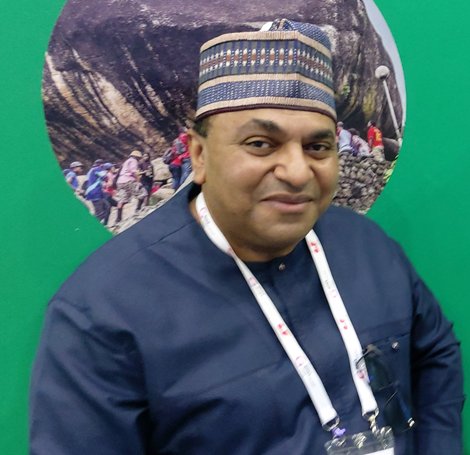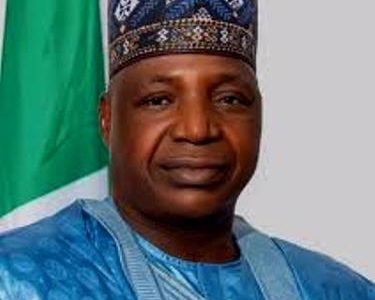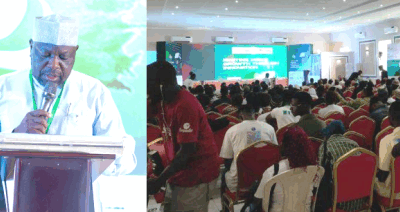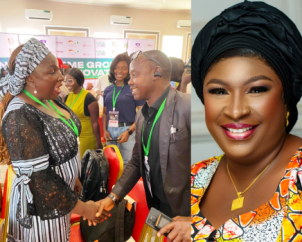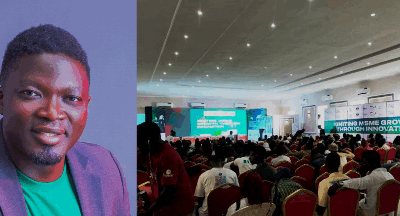Executive Chairman, IoT Africa Networks Ltd, Lare Ayoola, shares with IT Edge News, Chisa Akor, in Dubai, UAE, his plans to push for strategic adoption of Internet of Things (IoT) technology in public and private spheres. At the just ended GITEX Technology Week where IoT Africa Networks occupied a very visible space inside the Nigerian Country Pavilion, Ayoola expresses conviction that IoT will redefine how businesses thrive and how governments function. He says the year of global pandemic, 2020, has further widened the value propositions of IoT from the oil & gas, education to health sectors, among others. But government and other stakeholders must be prepared, says Ayoola, whose company is the exclusive Sigfox operator in Nigeria – giving them a unique edge as distributors of many IoT connected devices in Africa’s biggest economy of over 200 million people.
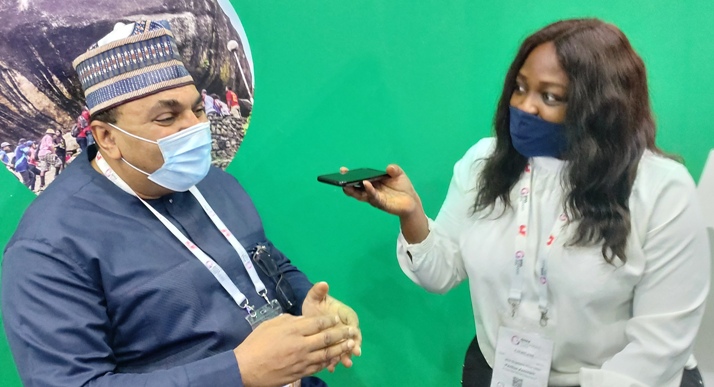
What does your company do?
I’m the Executive Chairman of IoT Africa Networks Limited and IoT Africa is the Sigfox operator for Nigeria and Sigfox is the largest low power wide area network IoT provider in the world. And what we do is that we are the exclusive agent or distributor for Sigfox in Nigeria and our job is to build the network across Nigeria so that devices, IoT devices can easily connect to our network and get or gain access to the cloud and to the clients’ systems operating centre. So essentially, we sell connectivity for the internet devices in Nigeria.
I thought it was in Africa not just Nigeria?
Well the name is IoT Africa, it’s a prophetic name. We shall soon take over Africa.
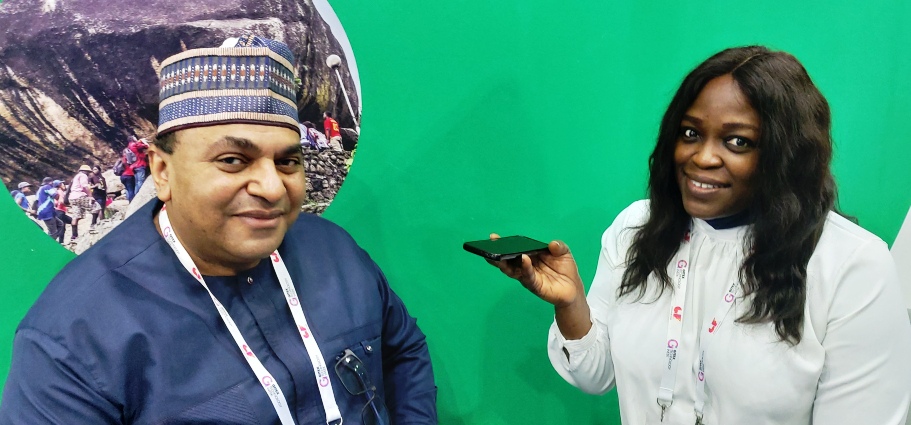
How big is the market for internet of things in Nigeria and Africa?
My estimate is that the market in Nigeria is nothing less than a billion dollars a year. In terms of devices, I think the addressable market over the next five to seven years is probably about 400 million devices so that’s a pretty big market. If 400 million devices were connected to the internet, the ecosystems in Nigeria will operate in a very different way. They will be far more efficient, the productivity will be higher, accountability will certainly be much better, visibility will be perfect, and ease of management will go up dramatically. So, this is what IoT brings: The Internet of Things. The Internet of Things is not there as a fancy word, a slogan. The Internet of Things is a technology that will change business dramatically. Take for example, if you have a smart irrigation system on a farm you can save 40% of your water consumption annually. If you look at the oil industry 25% can easily be shaved off or sliced off the cost of production of oil in terms of better project management, you’re looking at a savings of at least 8-10%. Take Shell Petroleum, for example, in the first year of their digitization programme, which involved introducing IoT to collect data for the more efficient running of their business, they gained five billion dollars. So, we are talking about the technology that changes the fortune of companies dramatically once they it utilize properly. One of the DHL branches in Europe use IoT using Sigfox to track the cages, the roller cages that they use to load the trucks and offload and they’re saving hundreds of thousands of dollars or euro every year; so cost saving, minimizing ways, visibility, accountability, just making your business work better is what IoT brings is all about and that’s what IoT Africa brings. We bring the enabling environment for the Internet of Things to take off in Nigeria. And then we will obviously have over 30 resellers, of which Tranter IT is the largest and they provide the IoT solutions, the end to end solutions. You’re looking at the device, from the device you’re looking at the software platform, the data analytics platform, you’re looking at data warehousing, and you’re looking at the impact on big data. So, all in all, you’re talking about an industry that is going to create tens of thousands of jobs and save tens of millions of naira and hopefully billions of dollars down the road.
“The Internet of Things is a technology that will change business dramatically. Take for example, if you have a smart irrigation system on a farm, you can save 40% of your water consumption annually. If you look at the oil industry, 25% can easily be shaved off or sliced off the cost of production of oil in terms of better project management, you’re looking at a savings of at least 8-10%. Take Shell Petroleum, for example, in the first year of their digitization programme, which involved introducing IoT to collect data for the more efficient running of their business, they gained five billion dollars.“
Have you achieved some of your objectives in GITEX 2020?
Certainly! This year, our objective was to network with the people in the industry, network with the Nigerian government delegation, which also includes the Honourable Minister of Communication & Digital Economy, the Director General of NITDA, the MD of Galaxy backbone, the MD of NigComSat, etc. And that has been highly successful for me because we provide a service that is extremely useful to the government and to the success of industry, and the government obviously is interested in the success of all verticals in the country. The second objective has been basically to show presence, to participate, and to help to boost the image of Nigeria, that we have done, just by wearing Nigerian traditional dress we have shown clearly in GITEX that we are a proud nation, we are proud of our tradition and we have a whole lot to offer the world.
Has Covid-19 impacted heavily in your business too?
Yes and no! Yes in that it slowed things down in 2020 when people were not investing in new technology, were not investing in new solution during the pandemic but at the end of the pandemic basically where we are now, it has made people realise that IoT is essential. There are many parts of your business that you cannot afford to send people to go and check what is going on, to do the auditing, to check whether the warehouses are safe, whether there has been an intrusion, whether the oil wells pressure is too high or low, so basically they realised that the IoT is critical in a world where you have no idea when next you will be prevented from checking on your business, so the interest in IoT has gone up exponentially and we are very pleased with the interest that is being showed to IoT Africa Networks and to Tranter IT, the IoT solutions provider while IoT Africa Networks is the network provider. These are two of our companies because Tranter IT owns IoT Provider Network and IoT Africa Networks is a subsidiary of Tranter IT. Both companies are benefiting tremendously from the post-covid realisation on what has to be done if you want to protect your business and ensure that your business continues to run and continues to be safe and where your accountability is high and therefore your sustainability is assured.
Would you say the pandemic showed the importance of Internet of Things?
Absolutely it did! It also showed that we certainly do not have to be everywhere to see everything. We can use devices to be our eyes, our ears, our sensors and collect information using technology; using the internet and still operate as effectively as if things were normal; so yes, technology has gotten a massive boost from Covid-19 pandemic. So, well done to Covid but not well done to Covid because I’ll rather achieve that without anybody dying but sometimes it is the first storm that tells the village that using straw to build your house is not a good idea then you figure out you need to build something stronger. The world has realised we need to build a far more robust communications infrastructure; an information technology driven environment in order to overcome future viruses, future situations where you can’t physically travel, you can’t physically visit your businesses, your farms, etc. I’m very excited about the potential of digital or smart agriculture, where farmers will be able to know everything that they need to know in their farms, on their land, know where their cows are, and know when their cows are delivering calves. It’s just amazing. It’s going to make sure the overall profitability of business in Nigeria and across the world using the Internet of Things is astounding and I’m looking forward to participating in that new revolution toward profitability.
What are you focusing on in the next two years?
Over the next two years, we are going to build out our network to cover every part of the entire land area of Nigeria. We are going to spend a lot of time educating the public on the benefits of the Internet of Things. We are going to work with the private industry and the public sector in helping to create a robust local manufacturing capability for IoT devices so that we don’t have to import everything. In fact, we should import very little. We are going to focus on working with software developers to take it to the next level not just to collect the data but to be able to analyse the data. We are going to help the big data industry to grow, to deliver the amazing result that they can deliver to us so that ultimately, decision making will be a lot better, a lot sharper, a lot more effective and quicker so that we can catch up with the world. As a nationalist, as a person who loves the world and loves America and Nigeria, I want to see people prosper and my personal mission is to do my best to make sure that people don’t suffer and they live the best life they can.

